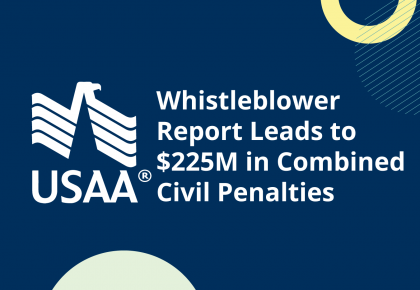Frontier Airlines Flight Attendants Settle Discrimination Lawsuit Against the Carrier
According to several recent reports, including those by ABC News and the Colorado Sun, a group of Frontier Airlines flight attendants has settled a sex and pregnancy discrimination lawsuit against the carrier for an undisclosed sum of money and other concessions to the company. The lawsuit alleged that Frontier Airlines required flight attendants to take unpaid leave for pregnancy-related absences and did not make accommodations for flight attendants to pump breast milk while working.
Among other changes to its policies due to the settlement, Frontier will allow flight attendants to use “wearable breast pumps” during flights and provide lactation facilities at airports on the ground. Also, as part of the settlement, Frontier agreed to publicly acknowledge the importance of accommodating pregnant and lactating employees and make clear that pregnancy-related absences will not be subject to disciplinary action. Even though these statements should seem obvious, it is clear that Frontier was in a difficult position with accommodating pregnant employees but handled the situation very poorly. In the past, the plaintiff flight attendants alleged they were disciplined for taking pregnancy and lactation-related leave. They were treated differently from male and non-pregnant or lactating female employees.
According to recently published EEOC charge statistics, 2,261 pregnancy-related sex discrimination claims were filed in fiscal 2021, making this a hot area for litigation. Of those charges, 13.6% (307) were resolved in the settlement, with $14 million recovered by the EEOC on behalf of pregnancy-discrimination plaintiffs. Of course, those figures do not consider the high number of private lawsuits, such as the Frontier case, which comprise the bulk of discrimination litigation. As you can see, pregnancy discrimination is destructive to the work lives of those it impacts and lucrative for plaintiffs’ attorneys looking for the next high-profile case.
In addition to the significant public relations impact the news of (or resulting mandatory public statements) can have on your organization, the cultural implications of forcing employees to work in a discriminatory environment are costly. Even though it can be challenging to accommodate lactating employees’ needs when working on a commercial air carrier, the law requires the airlines to do so long as the accommodation is reasonable. This is just another example of capacity that may be difficult but is, at the end of the day, “reasonable” in the eyes of the law. It is essential that your organization carefully consider and analyze an accommodation request, and before denying it, ensure that there is an actual legitimate business justification for doing so. As you can see, even in cases where accommodation can cause an apparent burden on the employer, the housing may very well be reasonable in scope, as the parties in the Frontier lawsuit agreed.
Syntrio has developed several anti-discrimination products to assist your organization with cultural improvement and avoid costly claims. We have just completed a thorough overhaul of our sex discrimination module, which contains updated scenarios based on real-life cases that are fresh and relevant to the user. In addition, we have developed several communication tools to help your organization communicate its EEO message to the workforce. We invite you to speak with a staff member today to discuss the numerous ways we can help you improve your culture and reduce the likelihood of a discrimination claim.




